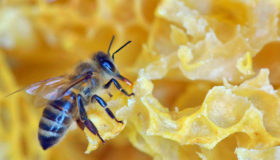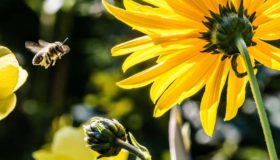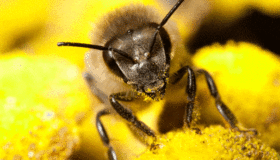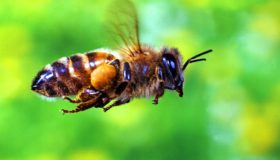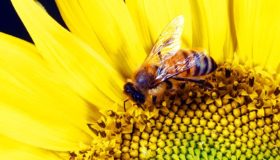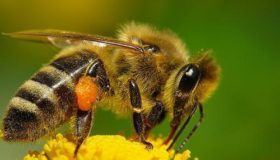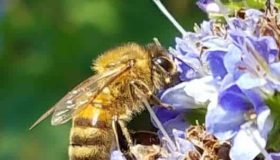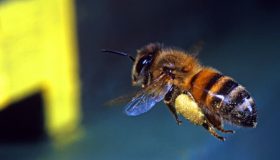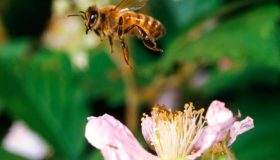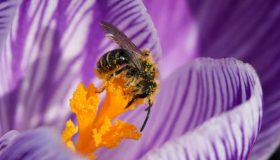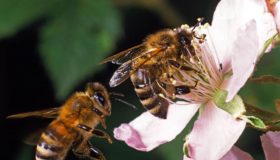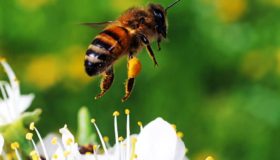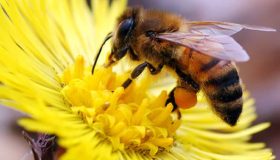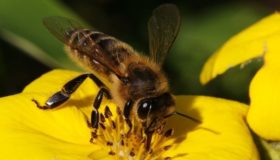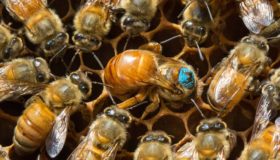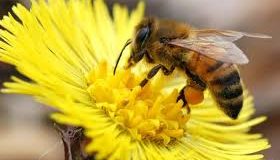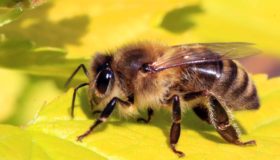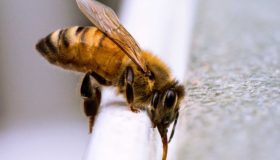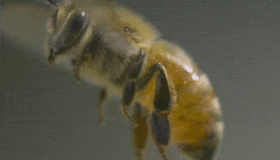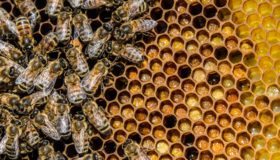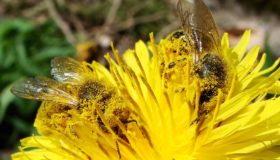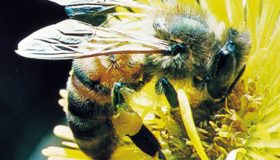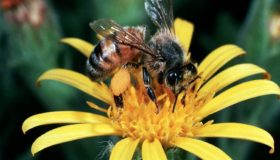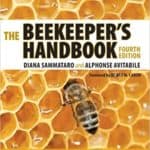Class is FULL. Thank you for your interest. We hope to hold another class in spring, 2022.
MCBA's Beekeeping 101 class teaches the beginner beekeeping skills needed to establish, maintain and protect a honey bee colony. There is a lot to learn, but remember: bees have trained beekeepers for thousands of years, and they have gotten good at it.
ENROLLMENT FORM - scroll to the bottom of this page (must be logged in)
Course Details
- WHAT:
- LIVE, ONLINE Beginner Beekeeping Class plus demonstrations with live bees in the club apiary (bee yard)
- FORMAT:
- Approx. 18 hours of Zoom classroom presentations, presented one night a week for 6 consecutive weeks, PLUS an in-person instruction in an outdoor apiary (Max 10 students per in-person session). Face masks and bee veils are mandatory.
- WHEN:
- Zoom Days Six Thursday evenings: Feb 4, 11, 18, 25 March 4, 11
- Zoom Times: 7pm to 10pm
- The in-person Apiary Session: Two options, Sat March 20, or Sun March 21 - Requires advance signup to reserve your spot. Enrolled students will receive a link in January to reserve their day and time slot.
- WHERE:
- On-Line via Zoom
- In-Person Apiary Session will most likely be at Brookside Nature Center (click for directions) 1400 Glenallan Avenue, Wheaton, MD 20902 (location subject to change)
- COST: $80 TUITION (Plus students must obtain their own textbook)
- SEATS AVAILABLE: 80
- PREREQUISITES:
- Only MCBA members in good standing may register and attend this class (Not a member? It is easy to join and is just $21 for a whole year! Join HERE)
- Students must obtain their own text book, The Beekeeper’s Handbook (4th Edition) by Diana Sammataro and Alphonse Avitabile
- Each Student must have their own Zoom.com account (free) registered to the same email address they used to join MCBA. Each student will be assigned a unique zoom link to access the classes and breakout sessions. Borrowing someone else's account will not work.
- Desire to learn fascinating honey bee facts & beekeeping skills, and enthusiasm to read weekly preparation materials, to participate in class discussions, and to complete weekly take-home quizzes (open book).
THINK YOU WANT TO BE A BEEKEEPER?
You’ll be taking on the earnest responsibility of caring for 10’s of thousands of honey bees. Beekeepers must monitor their bees’ wellbeing. They make sure bees have the things the colony needs to thrive (including food, water, shelter, and a viable bee community), and that the colony isn't suffering from things that cause honey bees harm or death -- (including parasites, diseases, and invaders that want to rob them).
IT IS A YEAR ROUND COMMITMENT.
SPRING requires frequent inspections of the inside of the hive. You’ll check if they need food, and you’ll help the colony if it gets too big or too small. Spring is the only time in our area when bees make excess honey, so you need to be ready to enlarge their hive as they run out of storage space. However, the number one thing to do in early spring is treat for mites
SUMMER requires inspections every two or three weeks. You won't harvest honey your first year, but keep feeding your bees. The food they store now has to last them till next spring. In our area, very few blossoms produce appreciable nectar after June. In late July / early August it is important to treat for mites again, because the mite population will be peaking. Treating for mites ensures the bees are strong and healthy as they start producing the generation of bees that will tough-out the winter. No treatment successfully kills all the mites, and new mites arrive all the time, so treating is an ongoing effort.
FALL is your last chance to ensure the hive is arranged and stocked to survive winter.
WINTER doesn’t require regular inspections - opening the hive chills the baby bees. Mostly, use winter to plan for the busy spring, and learn new things about caring for bees.
Students are required to obtain their own Textbook
The Beekeeper’s Handbook (4th Edition)
Diana Sammataro and Alphonse Avitabile
Students will receive links to
- Online Syllabus
- Weekly online quizzes
- Session specific reading materials
- Helpful videos
Additional Resources
Additional Reading
- Our Website! www.MontgomeryCountyBeekeepers.com
- Backyard Beekeeper – author Kim Flottum
- Top-Bar Hive Beekeeping: Wisdom and Pleasure Combined – author Wyatt A. Mangum
Bee Magazines
Beekeeper Equipment Suppliers
- Maryland Honey Company (Gaithersburg)
- Mann Lake (Mail order)
- Kelley Beekeeping (Mail order)
- Dadant (Mail order)
- BetterBee (Mail order)
ENROLLMENT FORM is no longer available
You are not currently logged in. Please login and return to this page to see the class enrollment form. Thanks!

